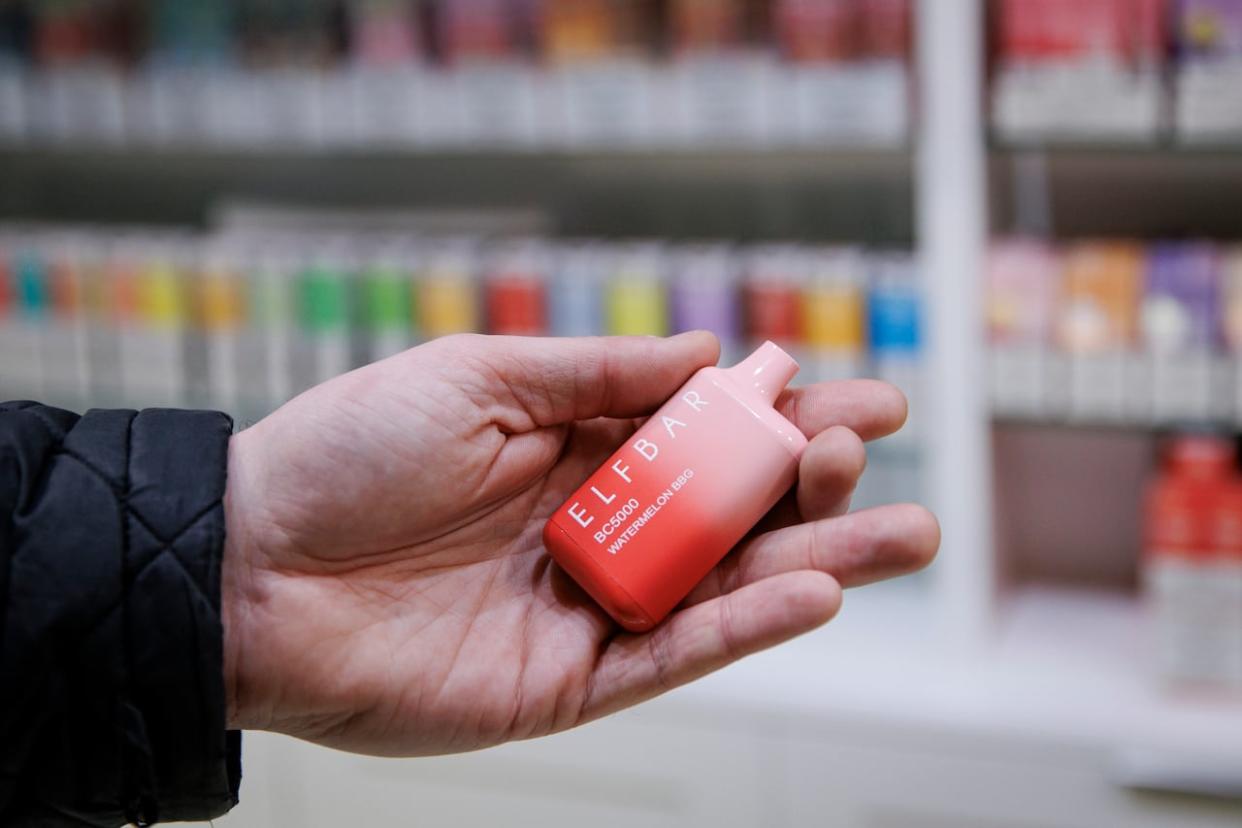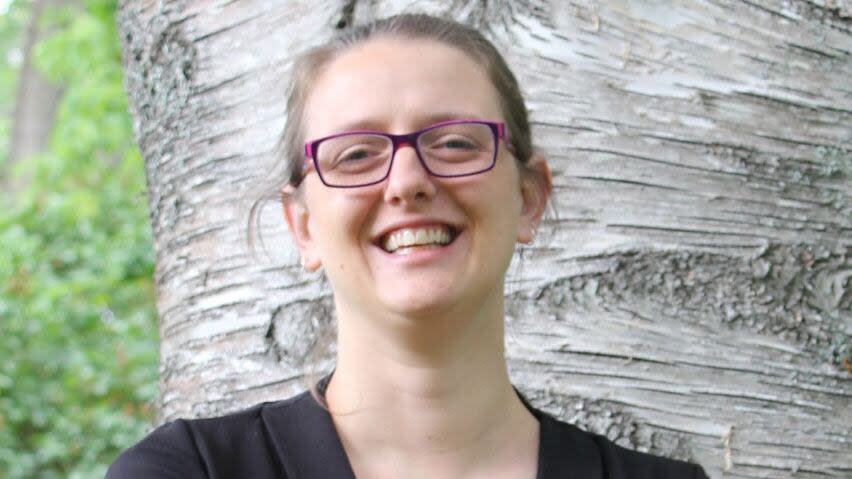12 Anglophone West schools using sensors that detect bathroom vaping

More New Brunswick schools are installing high-tech sensors in their bathrooms to detect student vaping.
Vaping seems to be happening in schools more often, said Darla Day, director of schools for the Fredericton area in the Anglophone West School District.
It refers to the use of handheld electronic devices such as e-cigarettes to inhale heated aerosol products that often include nicotine or cannabis, propylene glycol, glycerol and other chemicals, according to Health Canada.
Students are vaping in bathrooms, hallways and other common areas, Day said.
Vaping is a little easier to conceal than smoking, she said, and is popular with teens, but it's not a healthy practice or one that school officials promote.
"It's like smoking cigarettes," she said. "It's not permitted, and we don't want it happening."

Darla Day, director of schools for the Fredericton area in the Anglophone West School District, says vaping is a little easier to conceal than smoking and is popular with teens. (Submitted by Darla Day)
Day is involved in overseeing the installation of HALO devices in the schools that are asking for them.
HALO units can detect the difference between vaping and smoking, she said. They can also pick up sounds such as yelling or fighting.
More than 40 HALO detectors have been installed in 12 schools in the Anglophone West district, said Day. Most of them are in high schools, but there are also a couple in middle schools and kindergarten to Grade 12 schools.
Some have had them for a couple of years already and others are asking for them, she said.
Besides the original purpose of curbing vaping, schools are reporting other benefits, said Day.
"It's also reducing the amount of vandalism," she said.
That's because the machine can alert administrators to all sorts of things going on in bathrooms that shouldn't be.
The device detects loud noises, such as banging if something's being destroyed. It can also detect a cry for help, said Day.
And it can detect other gases and substances such as THC or marijuana and carbon monoxide.
There aren't any cameras in bathrooms, but the vape detector software is attached to school surveillance systems and school administration computers and cellphones, she said.
The administrator gets an alert, which includes the time, date, location and whatever the specific issue may be.
The units are pricey, said Day. Each costs more than $2,000, including the device, ethernet connection and installation. The district is covering part of the expense and getting schools to cost share, she said.
"We do see its value," said Day.
Nevertheless, she advises school administrators to think carefully about it. The alerts can be quite frequent, said Day, and administrators have to figure out what they can reasonably respond to and what the response should be.
Some schools are instead choosing to focus on education to try to get students cut back on vaping and marijuana use, said Day.
In Anglophone North School District, vaping has been an issue at high schools and middle schools, said Meredith Caissie, spokesperson for the district.
"Staff continue to monitor and address [the issue] daily, on a case by case basis," she said.
One school in Anglophone North is piloting the use of vape detectors, and has seven units installed. The impact of the detectors will be evaluated at the end of the school year, Caissie said.

Melanie Langille, president and CEO of NB Lung, applauds school administrators for installing vape detectors. (Dusty Green)
The health promotion group NB Lung supports school measures to curb vaping, whether through education or with vaping detectors.
"The urgent need for education to help youth avoid (and quit) vaping cannot be understated," said Melanie Langille, the group's president and CEO, in an emailed statement.
She also applauded school administrators for installing vape detectors.
"Youth vaping rates are rising at an alarming rate," said Langille.
Research indicates many youth who begin vaping eventually start smoking cigarettes, she said.
The reported increase in student vaping comes despite a flavour ban passed by the New Brunswick government a few years ago that was intended to make the products less attractive to children.
"We caution that the innovation of the industry continues to develop more discreet devices," Langille said.

